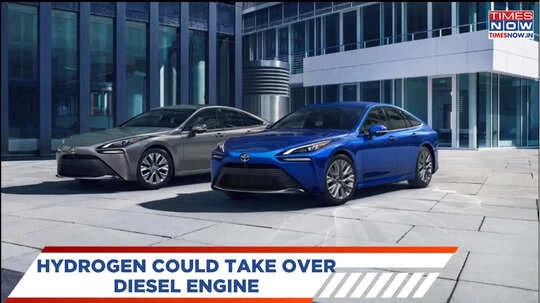When we talk about the future of cars, most of us think about electric vehicles (EVs). But Toyota still has its eyes on another technology, which is ‘hydrogen’.
The company has been working with hydrogen for over 30 years now and believes this clean fuel could one day take the place of diesel engines, according to CarExpert Australia.
Sean Hanley, Toyota Australia’s vice president of sales, marketing, and franchise operations told CarExpert Australia, “Diesel’s not going to go anytime in the next decade, but beyond that-I think hydrogen will take over diesel. Eventually I think diesel in-not the foreseeable future-but in the longer term, I can’t imagine diesel necessarily being a fuel of the future, because the reality is a petrol [vehicle] can do everything it can do-plus some.”
Hanley admitted that “people are poo-pooing hydrogen” right now, but the brand is confident enough that it could eventually become a mainstream alternative to diesel. But the challenge is building enough hydrogen refueling stations. In countries like Australia, the infrastructure is currently very limited, however Hanley believes better investment could change that soon.
History of Hydrogen
Hydrogen isn’t new to the world at all. In fact, back in 1807, an engineer named François Isaac de Rivaz built the world’s first engine powered by hydrogen. Then in 1966 General Motors revealed the Electrovan, which is the first hydrogen fuel-cell vehicle. Even NASA used fuel cells to power its Apollo missions.
Toyota itself launched the Mirai in 2014, which is the world’s first mass-produced hydrogen fuel-cell car. While it hasn’t sold in huge numbers, it proved Toyota’s commitment to this alternative fuel.
The Global Hydrogen Debate
Not everyone agrees with Toyota’s vision, but there are a few examples like, BMW is continuing its hydrogen experiments and plans to put a fuel-cell system into production by 2028. Whereas, Stellantis which owns brands like Jeep and Peugeot has called hydrogen a “niche segment” and ended its investment on it.
Adding to the challenges, countries like the US have seen hydrogen infrastructure contracting, in fact Shell even shut down all seven of its hydrogen stations in California last year. Still, Toyota remains optimistic about the hydrogen engines. The company believes hydrogen could provide a cleaner future, especially for vehicles that need diesel’s strength and long-range performance, like trucks and big SUVs.
